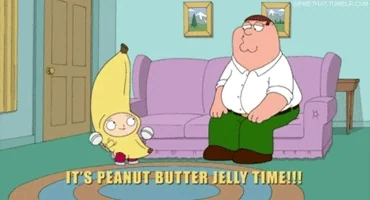Bleach has a wet time of 10 minutes!
Yep the rule is always to bleach the things that need it and do everything else while you’re waiting for the wet time to pass.
I’m no physicist, but I think wet time is what happens when regular time gets wet.
is that why Mondays are such a drain?
That’s why Aquaman will never be tasked with protecting the sacred timeline. Also, IP infringement, but mostly the moisture thing.
fun fact! the opacity of audio effects is instead described by a scale from wet to dry, with full wet being 100% “opacity” and dry being 0% “opacity”
That’s nice and all, but I have no idea what either “wet” or “opaque” mean in relation to sound =(
sound effects, or more properly audio effects - are things like pitch shifts or reverb, you apply them onto a clip and they modify how said clip sounds. If you later decide you added too much of say reverb you can always lower the wetness of that effect, in the same way you’d see a layer of a picture halfway through you can now hear the sound effect halfway through!
Got it! Thanks for taking the time to explain it!
Is opacity the same as clarity in this context? Like a wet song being like a cd where as if you switched to radio it’d be more dry? I’m imagining a burst of static as a drop in opacity.
dang, sorry i should’ve given more context to that, as a regular picture drawer i referred to image editing without realising others might not have the same point of reference for what opacity is
imagine you have a picture of pure white, you then add a layer of pure black, but you change the opacity of the black layer to 50%, which then shows your final picture as grey. Using more specific terms you changed the value of the alpha channel of the black layer to only be halfway visible.
This is what i was referring to as “opacity”. Now with your example it’d work in the opposite way, at the risk of making it more confusing (i apologise in advance).
A CD song wouldn’t be wet or dry.
You can take your CD song and apply an equaliser filter effect and make it sound like radio.
Now that filter has a wet to dry slider.
If you slide it all the way to dry you won’t hear the changes the filter has made and you’ll hear the original CD release quality. If you slide it all the way to wet you’ll hear a modified version that sounds like radio, if you put it halfway through you’ll hear, in a way, half of the effect you applied.
it’s much easier to explain when you just have the thing in front of you and can hear the difference hah
So what are some normal wet times?
2 minutes, 5 minutes, 10 minutes
I upvoted you, but I wasn’t happy about it.
Yeah, I’d love to see a chart of some kind, for this
Depends on the specific product and formulation. It’s best to refer to the labeling on that particular product. Not all cleaners are equally effective on all pathogens.
When in doubt use fire
I thought it was called dwell time
I thought it was called contact time
I thought it was called adventure time
I’ve usually heard contact time as well.
Ben Shapiro told me there’s no such thing
Unless you run it through an autoclave, it’s a matter of statistics. Still, 99.99% clean is better than 0% clean.
Had to explain how iso alcohol is a poor disinfectant earlier today and I’m still mad about it.
Depends on what the concentration is, IIRC. 70% is better than 90%.
That seems counterintuitive, why?
ELI5 answer is 90% alcohol dries out the bacteria too fast and it converts into a bacterial spore with a hard shell that protects its insides.
70% alcohol gives it time to penetrate the cell wall and “dissolve” the insides of the bacteria, either killing it or rendering it non infective.
From what I understand, the water helps “penetrate” the cell walls of bacteria and deliver the lethal dose of alcohol. Take out more water and it’s unable to penetrate and murder things as efficiently.
Alcohol and water are both polar and form hydrogen bonds, but of differing strength. You want those bonds to switch, which creates conformational changes and rips the structure of proteins apart. If you just replace all the bonds with alcohol you’ll develop a new, although denatured, stable configuration which can keep the cell wall intact. Instead you want to keep developing new stresses on it until it breaks. Neither can really penetrate the phospholipid membrane of the cell because it’s nonpolar, but those conformational changes create big holes where the surface proteins are.
Iirc, the higher water content keeps the alcohol from evaporating off as fast, keeping it in contact with the surface for a longer period of time.
unrelated, but does that mf have an iron cross on his shirt?
Iron shirt, or harness










